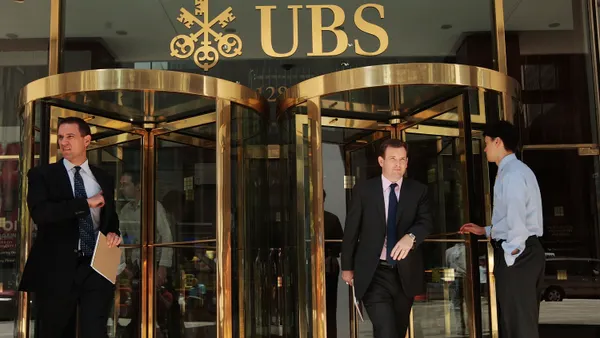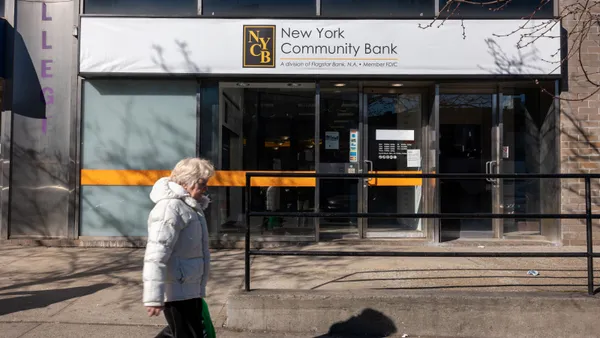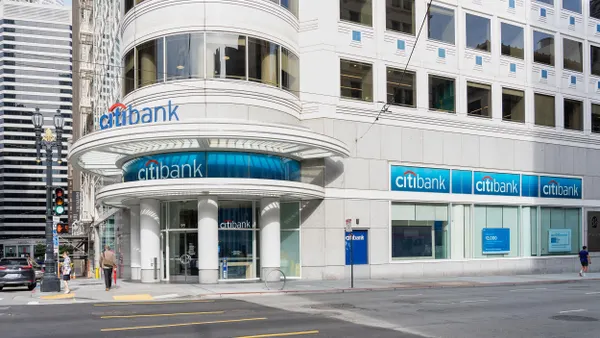Dive Brief:
- Top executives from merging banks BB&T and SunTrust faced questions Wednesday from the U.S. House Committee on Financial Services, with many lawmakers expressing concerns about the new bank's impact on community banks and credit unions and the potential for branch closures.
- Winston-Salem, North Carolina-based BB&T announced plans to acquire Atlanta-based SunTrust in February, a $66 billion deal that would relocate the combined Truist Bank to Charlotte.
- The BB&T-SunTrust merger is the banking industry's largest since the 2007-08 financial crisis.
Dive Insight:
Lawmakers showed a keen interest Wednesday in hearing the motivations behind a deal that would create the sixth-largest bank in the U.S., which is expected to serve 10 million households and have combined assets totaling $442 billion.
BB&T Chairman and CEO Kelly King, who will serve as Truist's chief executive highlighted the merger's ability to help the new bank invest in technology.
"When I first started in banking, the only thing that mattered was the touch between the banker and the client. … In order to have really good quality today, you have to have a blended relationship between touch, which is still important, and technology," he said. "With this combination, we will be able to ... scale and have the capability to offer a real high level of trust based on technology and touch."
Rep. Stephen Lynch, D-MA, raised concerns that Truist would saturate some areas, forcing smaller community banks and credit unions to close.
"Consumers are going to be in a less flexible environment if this merger goes through," Lynch said. "Community banks ... don't have the money to launch these mobile banking platforms."
SunTrust and BB&T have said the merger would result in 740 branches located within two miles of one another.
Rep. Maxine Waters, D-CA, the committee chair, expressed her fear that the merger would create a "mega-bank that is too big to manage and poses a risk to our financial system."
Similarly, Rep. Carolyn Maloney, D-NY, criticized banking regulators for showing a perceived "lack of interest" in the merger's potential negative consequences. Regulators "seem to act only as rubber stamps by simply approving every merger that comes before them," she said.
When asked by Rep. Blaine Luetkemeyer, R-MO, if the decision to merge was spurred by a desire to cut compliance costs associated with Dodd-Frank regulations, SunTrust Chairman and CEO William Rogers said no, reiterating the value added by technology.
"The benefits of this merger will allow us to increase our investments in compliance and use technology and other resources to be more effective and comply with all the regulations," he said.
Maloney and Rep. Nydia Velázquez also pressed the two executives on financing the gun industry, where the two banks' policies seem to diverge. Maloney asked King if Truist, like SunTrust, plans to deny loans to the manufacturers of assault weapons.
"SunTrust has a very careful screening process, where different committees examine the transaction. And transactions with gun manufacturers are almost always denied," Maloney said. "BB&T, on the other hand, has no specific gun policy."
BB&T arranged $147 million in loans to gun companies between 2012 and 2017, according to research from Guns Down America.
"Our policy is to help our clients achieve financial success and economic security according to the laws of the land," King said.
"I take that as a 'no,'" Velázquez said.














